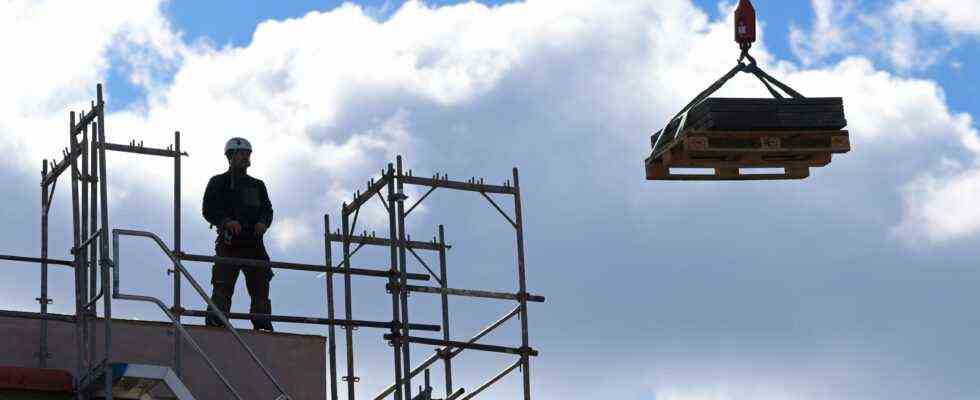Status: 10/15/2021 8:46 a.m.
In the collective bargaining between employers and IG Bau there was a huge crunch for months. Compensation for long journeys was a contentious issue. Now the social partners have agreed on a compromise.
The approximately 890,000 employees in the German construction industry get more money. In addition, they will receive a corona premium of 500 euros in the west and 220 euros in the east for the months of July to October 2021. This was announced by the industrial union Bauen-Agrar-Umwelt (IG BAU) and the Main Association of the German Construction Industry and the Central Association of the German Construction Industry. The bargaining parties needed five negotiation rounds and two arbitration rounds to reach an agreement – the first round of negotiations was in May.
The tariff package provides for wage increases for employees in three steps. As of November 1, 2021, incomes in the west will be increased by two percent and in the east by three percent. On April 1, 2022 there will be a further increase of 2.2 percent (east: 2.8 percent) and on April 1, 2023 by a further two percent (east: 2.7 percent). In addition, employees in the west will receive one-off payments of 400 euros as of April 1, 2022 and 450 euros as of April 1, 2023. In addition, a gradual increase in training allowances was agreed.
Compensation for long commutes
The agreement also provides for compensation for the often long journeys employees have to travel to their construction sites with a flat-rate regulation. IG Bau had made the so-called travel time allowance a condition for a collective agreement and demanded a compensation payment depending on the individual journey. The employers did not want to discuss this at first.
In addition, it was stated in the new contract, according to the information, that a 100 percent equalization of western and eastern incomes as well as training allowances must be achieved in 2026. However, every company in the east wage zone can also determine an east-west adjustment earlier for its employees by means of an in-house collective bargaining agreement.
“We can live with this compromise”
IG-BAU chairman Robert Feiger said: “Our ideas for fairer pay for employees were definitely higher, but we can live with this compromise.” With the help of the arbitrator, “a strike at the last minute” had been averted for the time being. Now the way is clear for the immense tasks that are due: Around 400,000 apartments have to be built in Germany every year, the order books of the construction companies are full.
The chief negotiator for the employers and vice-president of the Central Association of the German Construction Industry, Uwe Nostitz, said: “We had lengthy and difficult negotiations with a complicated and, in some cases, new subject.” Construction Industry Vice President Jutta Beeke added: “We have succeeded in negotiating a comprehensive package and achieving a result that can ensure planning security in the company over a long period of time.” The collective agreement has a term of 33 months.
The Federal Tariff Commission of IG BAU has to make a final decision in the next few days on the acceptance of the negotiated paper. The committees of the employers’ associations must also deal with this accordingly. The previous collective agreement expired in June.

